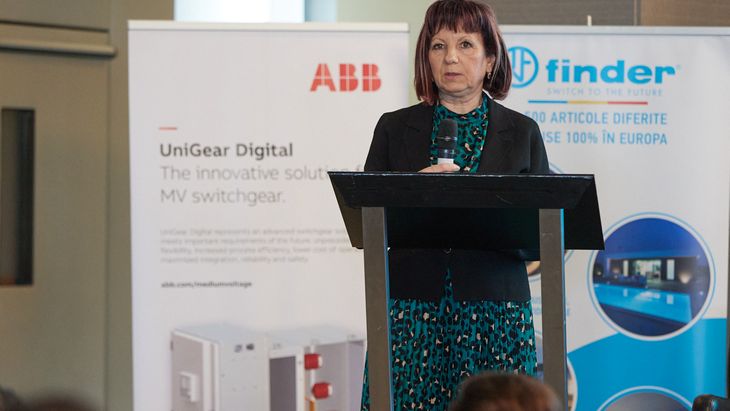The process of eliminating coal from the national energy mix is irreversible, and Romania’s priorities should be the replacement of old installations with non-polluting ones, especially since the infrastructure of the energy system is so old that it has difficulties in managing electricity imports.
“The phase-out of coal from the energy mix cannot be reversed. 2032 is the deadline. Thus, those coal capacities need to be replaced with green ones so that the energy system is not left without energy capacities and with an aging infrastructure that can no longer even accept imports”, said Elena Popescu, director general of the General Directorate of energy policies and green deal from the Ministry of Energy, at the conference “More renewables for Romania”, organized by Energynomics.
To achieve this goal it is very important that renewable energies are seen as an integral part of the national energy system, and not separately. Elena Popescu stated that at the level of the ministry there are “real concerns” related to investments needed to be made in the energy infrastructure. If the replacement of coal capacities is not done in time, then “the energy system will have a big problem”.
To encourage this transformation, the Ministry of Energy is working on the contracts for difference (CfD) scheme to attract new investments in Romania. “We have a scheme for renewables, it is an innovative way of thinking that combines a state aid scheme and the Modernization Fund to supply the necessary liquidity for the mechanism. It is a complex element, which we have as a milestone in the National Recovery and Resilience Plan – NRRP, so we are also under time pressure. We are in a slight delay, but I hope we will recover”, said Popescu.
In this decade, according to the commitments through the NRRP, Romania would include in the contracts for difference energy generation capacities from renewable sources totaling 10 GW. According to Popescu, the mechanism prepared by Romania is a first at the European level and if it proves to be functional, the model could be replicated in other countries. For the mechanism to work, all institutions in Romania involved in the energy sector must understand that “everyone has to go the extra mile”, emphasized Elena Popescu.
Through the CfD mechanism, the authorities intend to reduce the energy price pressure at the level of the final consumer. “We will use the final consumer to feed the fund only if the resources from the Modernization Fund are exhausted, which is not plausible, since the entire CfD scheme amounts to 3 billion [euros], and the Modernization Fund has 15 billion”, he stated the general director.
Moreover, “the interest in renewables is fantastic”, but the targets regarding their share in the energy mix are also increasing. If in 2007 there was talk of a 20% target, it increased in 2018 to 32%, and the current discussions in Brussels aim to increase it to at least 40%.
This is feasible because Romania is one of the ten states that will benefit from money through the Modernization Fund, which will be fed with amounts from the greenhouse gas emissions certificates allocated. “For Romania, it means about 15 billion euros, meant to support the modernization of the energy sector until 2030. A percentage of 70% of this fund must go to priority projects, which means renewables and related infrastructure, and 30% to other projects. The Green Deal envisages raising the quota for priority projects to 80%”, said Popescu.
The adaptation of the legislation to create the necessary conditions for the development of renewable energies involves all local and administrative authorities and all ministries that must “reformulate their regulations to facilitate renewables”.
“This means a lot of pressure not so much on the renewables industry because it is clear that it is their time and there are no barriers to their development. On the other hand, there is a fantastic pressure on Transelectrica, because if the development of the infrastructure does not keep pace with the development of renewables, we cannot achieve our goals”, said Elena Popescu.
The conference “More renewables for Romania” was organized by Energynomics with the support of our partners among which ABB, ACE Industrial Software, BCR, Consolight, Eaton Electric, Elektra Renewable Support, EnergoPower, European Energy, Finder, Geminox, Huawei, ING Bank, LAPP Romania, Marsh & McLennan Companies, Phoenix Contact, Photomate, Prime Batteries Technology, REI Grup, Renomia-Gallagher, Valmont, Volt, Wiren România, Wise Finance Solutions.
